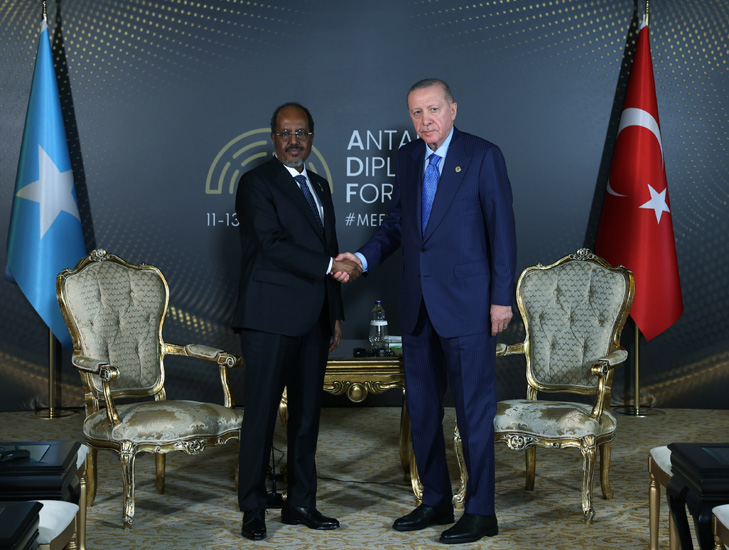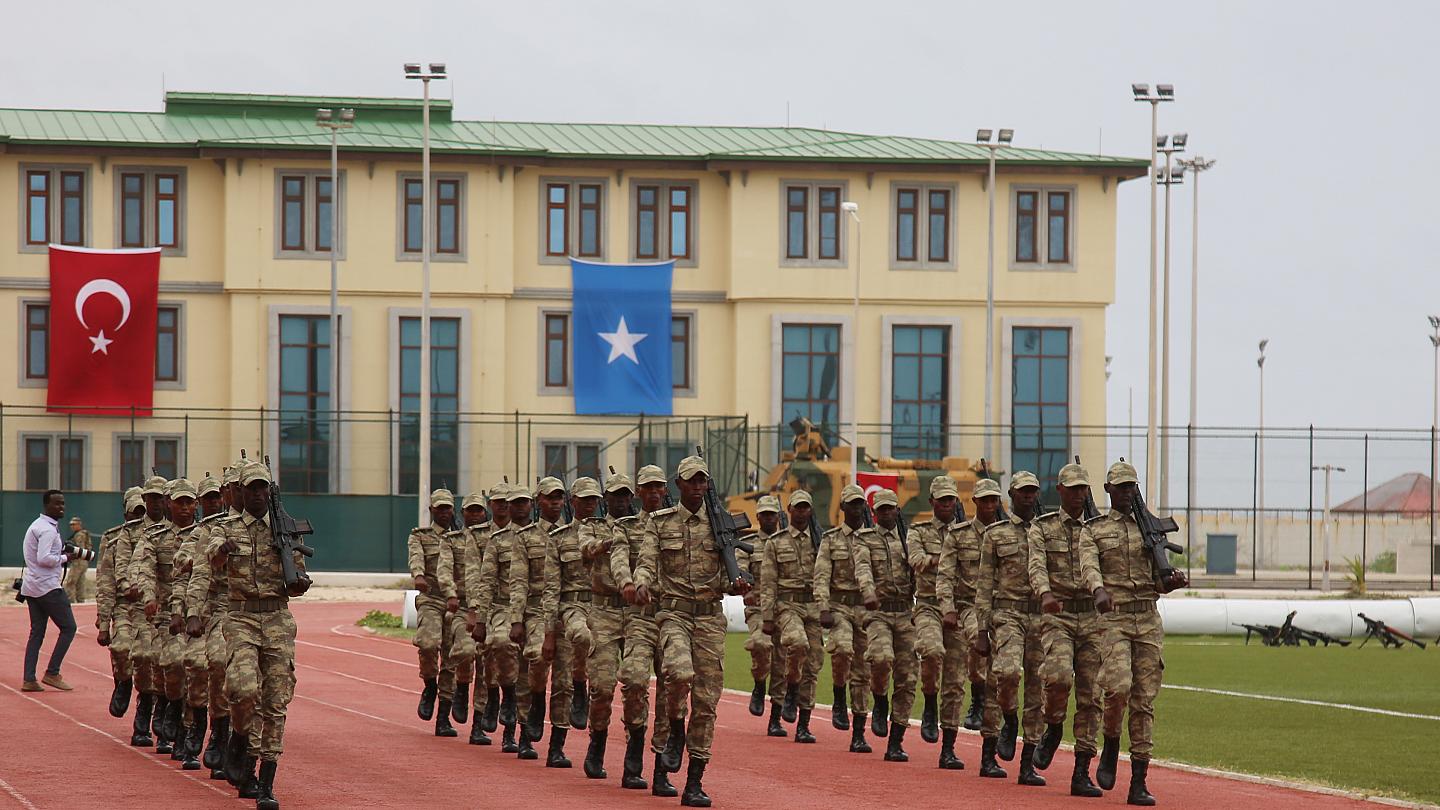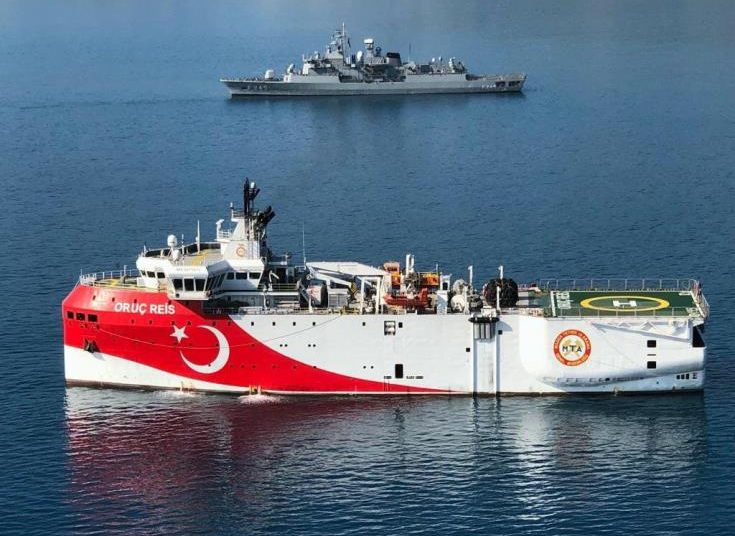Levent Kenez/Stockholm
The full text of a wide-ranging hydrocarbons agreement between Turkey and Somalia has been made public following its submission to the Turkish Parliament for ratification on April 22. The release of the document has offered the first detailed insight into the scope, terms and strategic intentions behind Ankara’s deepening energy and defense partnership with Mogadishu. Turkey has secured sweeping operational and financial privileges according to the agreement.
The document, officially titled “Agreement Between the Government of the Republic of Türkiye and the Federal Government of the Federal Republic of Somalia in the Field of Hydrocarbons,” was signed on March 7, 2024, in Istanbul by Turkish Energy Minister Alparslan Bayraktar and Somali Petroleum Minister Abdirizak Omar Mohamed. It was only recently made public as part of parliamentary proceedings.
According to official justifications attached to the submission, the agreement is a key component of Turkey’s Africa Opening Strategy, which identifies Somalia as a priority country due to its strategic maritime location and untapped energy resources. Somali territory is estimated to contain 6 billion cubic meters of proven natural gas reserves and as much as 30 billion barrels of offshore hydrocarbon potential.
Turkish authorities emphasize that with the improving political stability in Somalia, the country presents a viable environment for investment in hydrocarbons. The agreement, they argue, will enhance bilateral cooperation, allow Turkey to share technical expertise and secure access to energy resources that support Turkey’s broader strategic interests in maritime trade and energy security.

The recently disclosed text of the hydrocarbon agreement has revealed a series of provisions that significantly favor Turkey’s operational and financial position in Somalia’s energy sector.
One of the most notable clauses removes the need for Turkey to pay any upfront costs. According to the agreement, no signature, development or production bonuses are required from Turkish entities, nor are they obligated to pay surface or administrative fees. These exemptions, outlined in the document’s Article 4.5, deviate from standard industry practices where host governments typically demand substantial initial payments for exploration rights.
In terms of revenue structure, Turkey has secured a highly favorable cost recovery arrangement. Under Article 4.7, Turkey is entitled to recover up to 90 percent of the petroleum it produces each year — whether oil or natural gas — as “cost petroleum,” a mechanism that allows the operator to cover exploration and production expenses before profits are shared.
Meanwhile, Somalia’s own share of the production is limited through a royalty cap set at just 5 percent. The royalties can be collected either in kind or in cash and do not apply to any petroleum that is reinjected into the reservoir or consumed during on-site operations.
Further enhancing its operational freedom, Turkey has been granted unrestricted rights to export its share of oil and gas at international market prices. As detailed in Article 4.8, Turkish entities may retain all revenue earned abroad from the sale of these resources whether through exports or domestic transactions — an arrangement that effectively removes Somalia from the financial flow of Turkey’s share.
Additionally, Turkey enjoys broad discretion in assigning its rights under the agreement. Article 4.3 allows Turkish Petroleum Corporation (TPAO) or any other designated Turkish entity to transfer its interests to third parties without the obligation to establish a local company or permanent office in Somalia. This clause provides Turkey with flexibility in forming partnerships or bringing in subcontractors without bureaucratic hurdles.

Finally, the agreement includes robust investment protections. Article 9 confirms that Turkish operations in Somalia will be protected under the 1966 Convention on the Settlement of Investment Disputes (ICSID). Any disputes arising from the interpretation or implementation of the agreement can be brought before an international arbitration panel seated in Istanbul, ensuring that Turkey can settle conflicts on its own legal turf with guarantees rooted in international law.
The agreement also permits Turkey to take its own supplementary security measures, with all related expenses counted as recoverable petroleum costs (Article 6). This clause is seen as directly connected to a presidential decree also submitted to parliament that seeks authorization to deploy Turkish naval and military personnel to Somalia for two years.
The deployment, according to Turkish authorities, will support counterterrorism and anti-piracy operations while also securing Turkish exploration missions. Starting in September 2025, the research vessel Oruç Reis, escorted by five Turkish navy warships, will begin exploration activities in Somali maritime zones.
The decree emphasizes Turkey’s goal of protecting Somalia’s natural wealth while contributing to regional security and the stability of key international trade routes, especially in the Gulf of Aden and the Arabian Sea.
This latest agreement builds on a February 2024 memorandum of understanding in which Somalia granted Turkey privileged access to its special economic zone and promised revenue-sharing mechanisms. Turkey, in return, pledged to assist in Somali defense capabilities, particularly in the development and training of the Somali navy.
According to Somali officials, Turkey will receive up to 30 percent of the revenue from oil and gas extracted in Somali waters in proportion to the projects it contributes to.
The hydrocarbons agreement also reaffirms Somalia’s sovereignty over its resources while recognizing Turkey’s role in their potential extraction, monetization and commercialization through joint long-term ventures.
Text of the hydrocarbon agreement between Turkey and Somalia.
While Turkish officials have hailed the deal as a step toward deeper regional influence and economic diversification, domestic opposition voices have raised red flags. Yankı Bağcıoğlu, deputy chair of the opposition Republican People’s Party (CHP), previously noted that Turkey’s costly deep-sea vessels, originally meant for exploration in the eastern Mediterranean, have been redirected due to foreign policy failures in that region. He also warned of possible diplomatic fallout with Ethiopia, which maintains strained ties with Somalia.
Meanwhile, following negotiations held in Turkey on December 12, 2024, Ethiopia and Somalia reached an agreement to put an end to their long-standing dispute over Ethiopia’s intention to construct a port in Somaliland, the self-declared republic. The Ankara agreement includes a provision for Somalia to grant Ethiopia access to a commercial port. Since the signing of the agreement, the leaders of both countries have paid official visits to each other’s capitals as a sign of improving ties. While both nations have also reopened their diplomatic missions, no tangible progress has been made beyond that, and technical-level discussions on the specifics are still ongoing.












